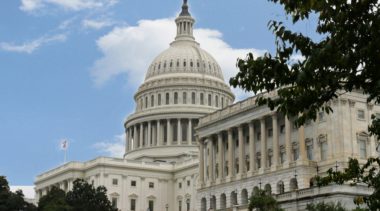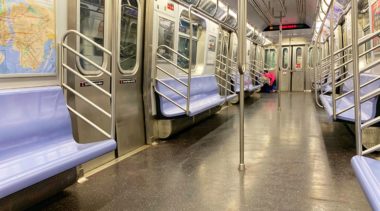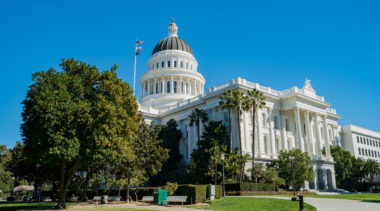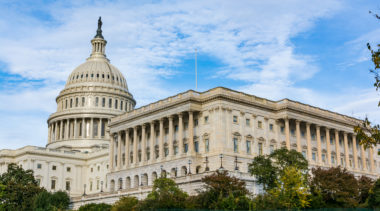Marc Joffe is a senior policy analyst at Reason Foundation.
After a long career in the financial industry, including a senior director role at Moody's Analytics, Joffe's research focuses on municipal finances, alternative asset investments, transportation policy and federal, state and local fiscal policy.
His financial research has been published by the California State Treasurer's Office, UC Berkeley, the Mercatus Center at George Mason University, California Policy Center, The Center for Municipal Finance, and the Macdonald-Laurier Institute among others.
Joffe is a regular contributor to The Orange County Register and his op-eds have also appeared in The Fiscal Times, Governing, National Review, The Hill, and The San Jose Mercury News.
Joffe recently presented a panel paper at the APPAM 42nd Annual Fall Research Conference along with University of Texas, Dallas Associate Professor Evgenia Gorina and his Reason colleagues Anil Niraula and Jen Sidorova.
He has an MBA from New York University and an MPA from San Francisco State University.
-
Portland’s Pension System Is Dependent on Property Values Rising
As long as the city enjoys robust property value appreciation and collects most of its tax levy, FDPR’s funding mechanism should remain sustainable.
-
How Government-Mandated Gym Closures Hurt Public Health and the Economy
The state’s current approach—forcing most health clubs to stay closed—is not a healthy prescription for citizens or businesses.
-
Assessing Joe Biden’s Proposed Tax Plan
Biden’s proposals are not likely to raise enough revenue to match his ambitious spending plans.
-
Federal Aid for States Needs More Transparency, Should Not Reward Mismanagement
If Congress does move forward with even more spending, it’s important that any support program not reward or encourage fiscal mismanagement in state and local governments.
-
The Risks and Negative Side Effects of California’s Split-Roll Initiative Grow
There have to be rising concerns that the proposition may worsen the state’s economy and the adverse conditions in the commercial property market.
-
New York Subways Can Avoid Dramatic Shutdowns Even Without More Federal Stimulus Money
Good public policy requires serious cost/benefit analysis to find the most effective use of available transportation funds.
-
Making Cost of Living Adjustments to Public Pensions During the Coronavirus Pandemic and Beyond
Cost of living adjustments that move with actual measurements of inflation are more appropriate than fixed-rate increases—especially in a year like 2020.
-
Americans Need More COVID-19 Data, Not Rules, From Government
Overwhelmingly, Americans make rational and community-minded choices. What they need from the government is public health data to help inform those choices.
-
What California Can Learn From Places Successfully Lifting Coronavirus Shelter-in-Place Orders
The state should look at the experience of Northern European countries that have been significantly and successfully relaxing restrictions over the last several weeks.
-
Poor Cap-and-Trade Proceeds Raise More Funding Questions for California’s High-Speed Rail Project
The high-speed rail project is under growing bipartisan pressure.
-
The Good and Bad In California’s Revised Budget, Which Projects a $54 Billion Deficit
At this time of severely limited resources, the state legislature should ask each department and agency to start at zero and to justify its entire budget and spending plans.
-
Work-From-Home Trends Should Have Bay Area Rethinking Rail Projects
Lower tax revenue, stagnating population growth and tech companies' increased willingness to let people work from home, might mean costly rail extensions in San Jose and San Francisco shouldn't move forward.
-
As Tourism Declines Due to Coronavirus Pandemic, Hawaii Faces Severe Pension Funding Problems
The Employees’ Retirement System of Hawaii had a funded ratio of just 55 percent before the coronavirus pandemic and economic downturn.
-
As Retail Industry Struggles, Cities Can Encourage Commercial-to-Residential Property Conversions
To help avoid business closures and building vacancies, cities should reduce unnecessary restrictions that may prevent businesses from adjusting to the realities of the pandemic.
-
The Estimated Funding Each State Would Get From the $3 Trillion HEROES Act
State aid per capita would range from about $1,200 in Texas and Florida to almost $40,000 per person in the Northern Mariana Islands.
-
HEROES Act Would Provide Over $2 Billion to the Northern Mariana Islands
The Northern Mariana Islands, a U.S. territory with about 54,000 residents, has 19 reported COVID-19 cases. This funding would amount to nearly $40,000 per individual in the commonwealth.
-
Committee Staff Report on Teacher Retirement System of Texas Recommends Increasing Investment Transparency
The Sunset Commission staff recommendations are a positive step towards a more sustainable retirement system for current and future Texas public servants and taxpayers.
-
What the Great Depression Tells Us About How the Coronavirus Could Impact Municipal Bonds
Sharp revenue declines could soon force governments to make uncomfortable choices between public services, public employees, retirees, and bondholders.


















